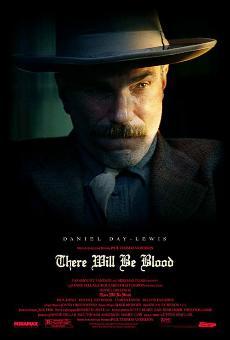
Score: A
Daniel Day-Lewis (“Gangs of New York,” “The Last of The Mohicans”) should be given his Oscar now. He should be handed the award for “Best Actor to Walk the Earth” for his performance in “There Will Be Blood.”
Any actor who can keep an audience entertained throughout a movie where the majority of the film is him talking, sitting and pondering is a great actor. Day-Lewis does it in this film, with P.T. Anderson’s direction and script, better than anyone has done before, and will be the benchmark for actors in the coming years.
P.T. Anderson’s American epic “There Will be Blood” is loosely based on the Upton Sinclair novel “Oil.” It is a masterpiece in filmmaking and shows the beauty and power of the movie experience. The film itself comes after a long hiatus by Anderson, whose last movie was “Punch-Drunk Love.” For the past few years he has been the personal helper to the late Robert Altman, and was chosen to be the director of “Prairie Home Companion” if Altman passed away during the filming. Anderson has enormous amounts of talent in writing and directing, and in “There Will Be Blood” he displays all of them. He shows off the mastery of a narrative, the beauty an image can hold, smart dialogue and the artful use of the camera. His resume also includes “Boogie Nights” and “Magnolia.” Each of his films are respected and each differ in story and topic matter but have a certain flair and style that Anderson brings to the table.
“There Will Be Blood” is his most ambitious project yet. He wrote a script about a man and his rise and fall. A difficult endeavor was at the forefront of the project: who would play this man, and who had the talent to do it for the entire film? He found that actor in Day-Lewis. Their teamwork is something to be marveled at.
Day-Lewis plays Daniel Plainview, who discovers oil at the turn of the 20th century. He is alone in the desert digging for silver when he discovers the liquid gold. Plainview creates a small oil company and builds it from the ground up, literally, to become the modern American success story.
Plainview then acquires a son, H.W. Plainview. It is not hinted at or specified until the end, however, where the boy comes from; whenever asked about his son, Plainview redirects the question. The boy grows up beside Daniel Plainview and becomes his business partner.
H.W. Plainview is played by first time actor Dillion Freasier. He and Day-Lewis make a formidable team of acting partners and scheming business minds. They promote their company as a family business. H.W. stands behind or next to Daniel in the meeting rooms, where he tries to woo the locals into selling or leasing him their land so he can rig up his oil derricks and pump the locals for all of their natural resources.
After a 20 minute beginning with no conversation, just the noises of pickaxes, levers and pulleys, a crying baby and a pen signing paper, the movie begins to move quickly, and soon reveals Plainview’s plans to acquire land. He starts his small company and looks for his big break to make “the real money.” At this point he is told by Paul Sunday (played by Paul Dano) about a place in California where the oil is seeping through the land. Sunday, a suspicious character at first, is the son of a poor farmer to whom the oil-rich land belongs – a fact only Sunday knows.
To Plainview, this information is worth every penny paid to Paul Sunday. Plainview ventures out to the California land that is holding enormous amounts of gold for the taking. He goes quail hunting with his son on the Sunday family ranch and takes in their hospitality while searching the land for oil. When he discovers the black goo leaking from the earth, he quickly makes a proposition to buy the land so he can “hunt quail” on it, never revealing the dark secret of his true intentions. This is when Eli Sunday comes into play.
Eli is Paul’s twin brother and the local minister who the people follow and admire greatly. He knows about the oil and does not want to give up his land without $10,000, if oil is in fact found. Eli, the symbol of religion, becomes the contradictory force to Plainview’s views and ideas. He profits just as greatly from the oil being pumped on his land. His church grows in size and number and his “healing” powers and influence becomes just as great as Plainview’s, but Eli is regarded as the better person.
The movie ends on a high note where religion and the American dream clash, and all the truths about mankind’s greed come to the forefront. There is little to no blood in the movie until the end, and even then it is artfully crafted into the demise of the American dream. Day-Lewis internally combusts on the screen and it is cringingly beautiful to watch.
Kevin Koczwara can be reached at [email protected]






